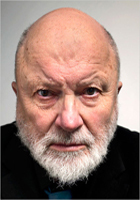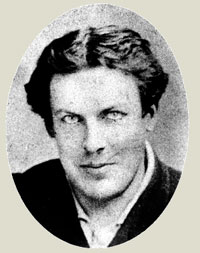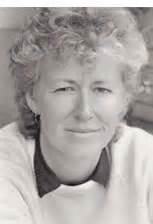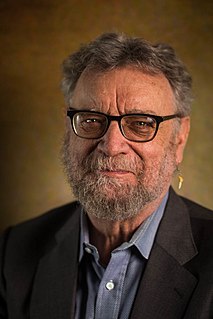Top 985 Prose Quotes & Sayings - Page 17
Explore popular Prose quotes.
Last updated on April 15, 2025.
We are difficult. Human beings are difficult. We're difficult to ourselves, we're difficult to each other. And we are mysteries to ourselves, we are mysteries to each other. One encounters in any ordinary day far more real difficulty than one confronts in the most “intellectual” piece of work. Why is it believed that poetry, prose, painting, music should be less than we are? Why does music, why does poetry have to address us in simplified terms, when if such simplification were applied to a description of our own inner selves we would find it demeaning?
Writing fiction, for me, is a more indirect form of self-exploration than writing verse. When I'm working on a novel I'm moving characters around and I'm thinking about plot and there's a lot of other things going on at the level of structure and story. With a poem, a single idea or line or emotion can sometimes be enough - there's often a sense, in the best poems, of capturing a single instant. Perhaps poems differ from prose in the degree of solace they can offer - by speaking so personally, so directly, about shared experience. A few lines of poetry can provide comfort.
Italian is a very different poetic situation and there are these hard and fast rhythmic periods, settenari, ottonari of seven and eight syllables. These are fundamental to the way people speak and write and breaking them is more radical in Italian than when we break a line. I'm sure there are Italian poets who want to write poetry as prose and break these Petrarchan rules. And breaking them is fun and a valid thing to do. But I'm more interested in trying to write poetry that absorbs tradition and uses it in new ways, and doesn't throw it out.
Every good story needs a complication. We learn this fiction-writing fundamental in courses and workshops, by reading a lot or, most painfully, through our own abandoned story drafts. After writing twenty pages about a harmonious family picnic, say, or a well-received rock concert, we discover that a story without a complication flounders, no matter how lovely the prose. A story needs a point of departure, a place from which the character can discover something, transform himself, realize a truth, reject a truth, right a wrong, make a mistake, come to terms.
I now wish that I had spent somewhat more of my life with verse. This is not because I fear having missed out on truths that are incapable of statement in prose. There are no such truths; there is nothing about death that Swinburne and Landor knew but Epicurus and Heidegger failed to grasp. Rather, it is because I would have lived more fully if I had been able to rattle off more old chestnuts?—?just as I would have if I had made more close friends.
In my day a reporter who took an assignment was wholly on his own until he got back to the office, and even then he was little molested until his copy was turned in at the desk; today he tends to become only a homunculus at the end of a telephone wire, and the reduction of his observations to prose is commonly farmed out to literary castrati who never leave the office, and hence never feel the wind of the world in their faces or see anything with their own eyes.
In the camp, this meant committing my verse-many thousands of lines-to memory. To help me with this I improvised decimal counting beads and, in transit prisons, broke up matchsticks and used the fragments as tallies. As I approached the end of my sentences I grew more confident of my powers of memory, and began writing down and memorizing prose-dialogue at first, but then, bit by bit, whole densely written passages. My memory found room for them! It worked. But more and more of my time-in the end as much as one week every month-went into the regular repetition of all I had memorized.
[Vathek] has, in parts, been called, but to some judgments, never is, dull: it is certainly in parts, grotesque, extravagant and even nasty. But Beckford could plead sufficient "local colour" for it, and a contrast, again almost Shakespearean, between the flickering farce atrocities of the beginning and the sombre magnificence of the end. Beckford's claims, in fact, rest on the half-score or even half-dozen pages towards the end: but these pages are hard to parallel in the later literature of prose fiction.
The Da Vinci Code may well be the only novel ever written that begins with the word 'renowned'... I think what enabled the first word to tip me off that I was about to spend a number of hours in the company of one of the worst prose stylists in the history of literature was this. Putting curriculum vitae details into complex modifiers on proper names or definite descriptions is what you do in journalistic stories about deaths; you just don't do it in describing an event in a narrative... Why did I keep reading? Because London Heathrow is a long way from San Francisco International.
He was a physicist, more precisely an astrophysicist, diligent and eager but without illusions: the Truth lay beyond, inaccessible to our telescopes, accessible to the initiates. This was a long road which he was traveling with effort, wonderment, and profound joy. Physics was prose: elegant gymnastics for the mind, mirror of Creation, the key to man's dominion over the planet; but what is the stature of Creation, of man and the planet? His road was long and he had barely started up it, but I was his disciple: did I want to follow him?
There was one person who greatly and directly benefited my career--my agent Virginia Kidd. From 1968 to the late nineties she represented all my work, in every field except poetry. I could send her an utterly indescribable story, and she'd sell it to Playboy or the Harvard Law Review or Weird Tales or The New Yorker--she knew where to take it. She never told me what to write or not write, she never told me, That won't sell, and she never meddled with my prose.
The strange, wonderful stories of Doctor Olaf van Schuler's Brain introduce us to the tremendously gifted Kirsten Menger-Anderson, a writer whose subject is nothing less than the diagnosis and cure of the human malady. We follow twelve generations of New York City's Steenwycks family through their forays into phrenology, mesmerism, radium therapy and similar misadventures, a historically rich narrative that Menger-Anderson delivers in striking, elegant prose and with a sure eye for detail. This is a remarkable debut by a writer to watch.
I arrived at my way of "working" as a way of visually approximating what I feel the tone of fiction to be in prose versus the tone one might use to write biography; I would never do a biographical story using the deliberately synthetic way of cartooning I use to write fiction. I try to use the rules of typography to govern the way that I "draw," which keeps me at a sensible distance from the story as well as being a visual analog to the way we remember and conceptualize the world.
I'm kind of a creature of the alt-weekly universe - my real education into higher culture was acquired in coffee shops, reading those papers, digging into that lively mishmash of opinion for drift, a sense of what to see, what to hear, what to read, etc. - and I'd like to think that scene's still vital, although I understand there's been a fair amount of conglomerating, which would seem to undercut its radical roots, its funky local flavor. I'd encourage any writer with an eye for life and an ear for prose to give it a try. You can work out your chops just fine in newsprint.
Writing isn't generally a lucrative source of income; only a few, exceptional writers reach the income levels associated with the best-sellers. Rather, most of us write because we can make a modest living, or even supplement our day jobs, doing something about which we feel passionately. Even at the worst of times, when nothing goes right, when the prose is clumsy and the ideas feel stale, at least we're doing something that we genuinely love. There's no other reason to work this hard, except that love.
...Mr. Wodehouse is a prose stylist of such startling talent that Frankie nearly skipped around with glee when she first read some of his phrases. Until her discovery of Something Fresh on the top shelf of Ruth's bookshelf one bored summer morning, Frankie's leisure reading had consister primarily of paperback mysteries she found on the spinning racks at the public library down the block from her house, and the short stories of Dorothy Parker. Wodehouse's jubilant wordplay bore itself into her synapses like a worm into a fresh ear of corn.
If a writer of prose knows enough about what he is writing about he may omit things that he knows and the reader, if the writer is writing truly enough, will have a feeling of those things as strongly as though the writer had stated them. The dignity of movement of an iceberg is due to only one-eighth of it being above water. A writer who omits things because he does not know them only makes hollow places in his writing.
...We may encounter many defeats, but we must not be defeated. That sounds goody two-shoes, I know, but I believe that a diamond is the result of extreme pressure and time. Less time is crystal. Less than that is coal. Less than that is fossilized leaves. Less than that it's just plain dirt. In all my work, in the movies I write, the lyrics the poetry, the prose, the essays, I am saying that we may encounter many defeats - maybe it's imperative that we encounter the defeats - but we are much stronger than we appear to be and maybe much better than we allow ourselves to be.
As I glanced at the phraseology of the research report, dull and unfathomable to outsiders like me, I thought that if you have the ambition to become a villain, the first thing you should do is learn to be impenetrable. Don’t act like Blofeld—monocled and ostentatious. We journalists love writing about eccentrics. We hate writing about impenetrable, boring people. It makes us look bad: the duller the interviewee, the duller the prose. If you want to get away with wielding true, malevolent power, be boring.
Will there never come a season Which shall rid us from the curse? Of a prose which knows no reason And an unmelodious verse: When the world shall cease to wonder At the genius of an Ass, And a boy's eccentric blunder Shall not bring success to pass: When mankind shall be delivered From the clash of magazines, And the inkstand shall be shivered Into countless smithereens: When there stands a muzzled stripling, Mute, beside a muzzled bore: When the Rudyards cease from Kipling And the Haggards Ride no more.
I've never been able to write poetry without having vast tracts of dead time. Poetry requires a certain kind of disciplined indolence that the world, including many prose writers, doesn't recognize as discipline. It is, though. It's the discipline to endure hours that you refuse to fill with anything but the possibility of poetry, though you may in fact not be able to write a word of it just then, and though it may be playing practical havoc with your life. It's the discipline of preparedness.
Printed prose is historically a most peculiar, almost an aberrant way of telling stories, and by far the most inherently anesthetic: It is the only medium of art I can think of which appeals directly to none of our five senses. The oral and folk tradition in narrative made use of verse or live-voice dynamics, embellished by gesture and expression--a kind of rudimentary theater--as do the best raconteurs of all times. Commonly there was musical accompaniment as well: a kind of one-man theater-of-mixed-means.
My Family and Other Saints echoes Gerald Durrell's classic memoir, My Family and Other Animals, not only in its title, but in its wonderful humor and lyrical prose. Like Durrell, Kirin Narayan takes the reader to a fascinating world far from our own, and brings to life its myriad sights, sounds and smells, while revealing the profound cultural beliefs of its people. India is just the most complex character among a cast of characters-family members, gurus, hippies, and neighbors-all of whom I now count as old friends.
Winter is on my head, but eternal spring is in my heart. The nearer I approach the end, the plainer I hear around me the immortal symphonies of the worlds which invite me. . . . For half a century I have been writing thoughts in prose, verse, history, drama, romance, tradition, satire, ode, and song. I have tried them all, but I feel I have not said a thousandth part of that which is within me. When I go down to the grave, I can say "I have finished my day's work," but I cannot say "I have finished my life's work."
Gene Wolfe is the greatest writer in the English language alive today. Let me repeat that: Gene Wolfe is the greatest writer in the English language alive today! I mean it. Shakespeare was a better stylist, Melville was more important to American letters, and Charles Dickens had a defter hand at creating characters. But among living writers, there is nobody who can even approach Gene Wolfe for brilliance of prose, clarity of thought, and depth in meaning
























